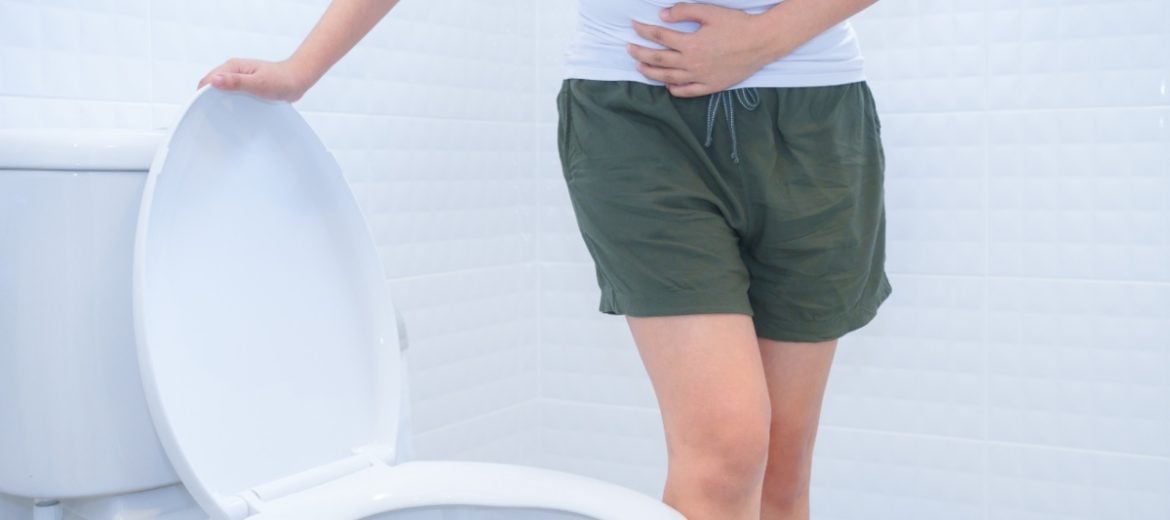According to a UNICEF report, diarrhea has been one of the leading causes of death. While up to 1.3 million children across the globe fall victim to this problem, India is one of the 5 countries where this condition is most prevalent.
Colloquially called loose motion, diarrhea is a condition where you pass loose stools multiple times a day. Many people tend to dismiss this condition out of shame or embarrassment and pop over-the-counter pills in order to quickly treat the condition. Yamini Dua, 24, was one of those people.
Yamini was an avid traveler and she would often be found backpacking across cities. After one of her trips, she started passing loose stools frequently and experiencing abdominal pain.
Yamini resorted to self-medication but that did not help her recover. Worried about possible dehydration, she sought medical help immediately and consulted Dr. Kartikeya Kohli, Associate Consultant, Internal Medicine at Sitaram Bhartia Hospital.
Here are some of the questions she decided to pose to the doctor during the consultation.
What causes diarrhea/loose motions?
“Drinking contaminated water and food, or maintaining poor hygiene and sanitation can lead to an infection. Diarrhea is a symptom of this infection and is rarely harmful in the long run if treated appropriately,” said Dr. Kartikeya.
“Why do I have diarrhea so often?” Yamini wondered.
“Diarrhea is very common amongst people who travel to places where contaminated food may have been ingested. You might be afflicted by traveler’s diarrhea, wherein you develop an intestinal infection after eating something you shouldn’t.”
How long can diarrhea last for?
“Often, symptoms of diarrhea disappear on their own within a few days and treatment is not necessary in these cases. In fact, taking over-the-counter (OTC) medications can cause more harm than good,” said Dr. Kartikeya.
In other cases, loose motions that last more than four weeks is known as chronic diarrhea and requires immediate medical attention. There are multiple reasons someone could be suffering from chronic diarrhea. You are advised to consult your physician at the earliest for a suitable diagnosis.
Common symptoms of diarrhea to keep an eye out for are:
- Loose and liquid stools
- Abdominal pain
- Loss of control with respect to bowel movements
- Nausea
- Bloating
When should you go to the hospital for diarrhea?
Yamini wondered if she was panicking needlessly and asked the doctor – “How serious is diarrhea?”
“We often tell our patients that diarrhea is rarely fatal in the long-term and it is the possibility of dehydration that is serious and life-threatening. Avoid taking OTC medicines to treat diarrhea as that may lead to the infection worsening and result in hospitalization.”
If you have noticed the following warning signs, consult your doctor as soon as possible:
- Dehydration
- Decreased urine output
- Blood in stools
- Persistent episodes of diarrhea (10-15 episodes)
- Vomiting
- Not being able to eat or retain fluids orally
- High-grade fever
Diarrhea Treatment
“How do I stop diarrhea immediately?” asked Yamini, hoping for an easy treatment option.
“It is important to note that stopping diarrhea is not the solution,” emphasized Dr. Kartikeya.
“Sometimes, diarrhea is your body’s way of purging the infection out of your body. In such cases, treating the loose motions without addressing the larger concern, i.e. the infection, can lead to unnecessary complications.”
“This is why treatment is usually not prescribed for diarrhea, but antibiotics may be advised along with a stool test and blood test in order to come to a proper diagnosis.”
The priority is to prevent dehydration that may occur due to the continuous outflow of fluids from the body. When her tests revealed nothing untoward with her health, Yamini was encouraged to increase her intake of fluids such as nimbu paani, lassi (buttermilk), chhaanch with sugar and salt, etc. in case ORS is not available.
“Your diet during diarrhea should remain normal. Try to eat healthy, home-cooked meals during this time. Some people are also advised by their doctors to maintain a lactose-free diet.”
Yamini realised in retrospect that she needed to maintain better control over her eating and drinking habits when she was in unknown or new places. Keeping Dr. Kartikeya’s advice in mind, she slowly noticed an improvement in her condition within a week!
Update: This post was originally written in July 2019 and has been updated with Dr. Kartikeya Kohli’s inputs in May 2020.

